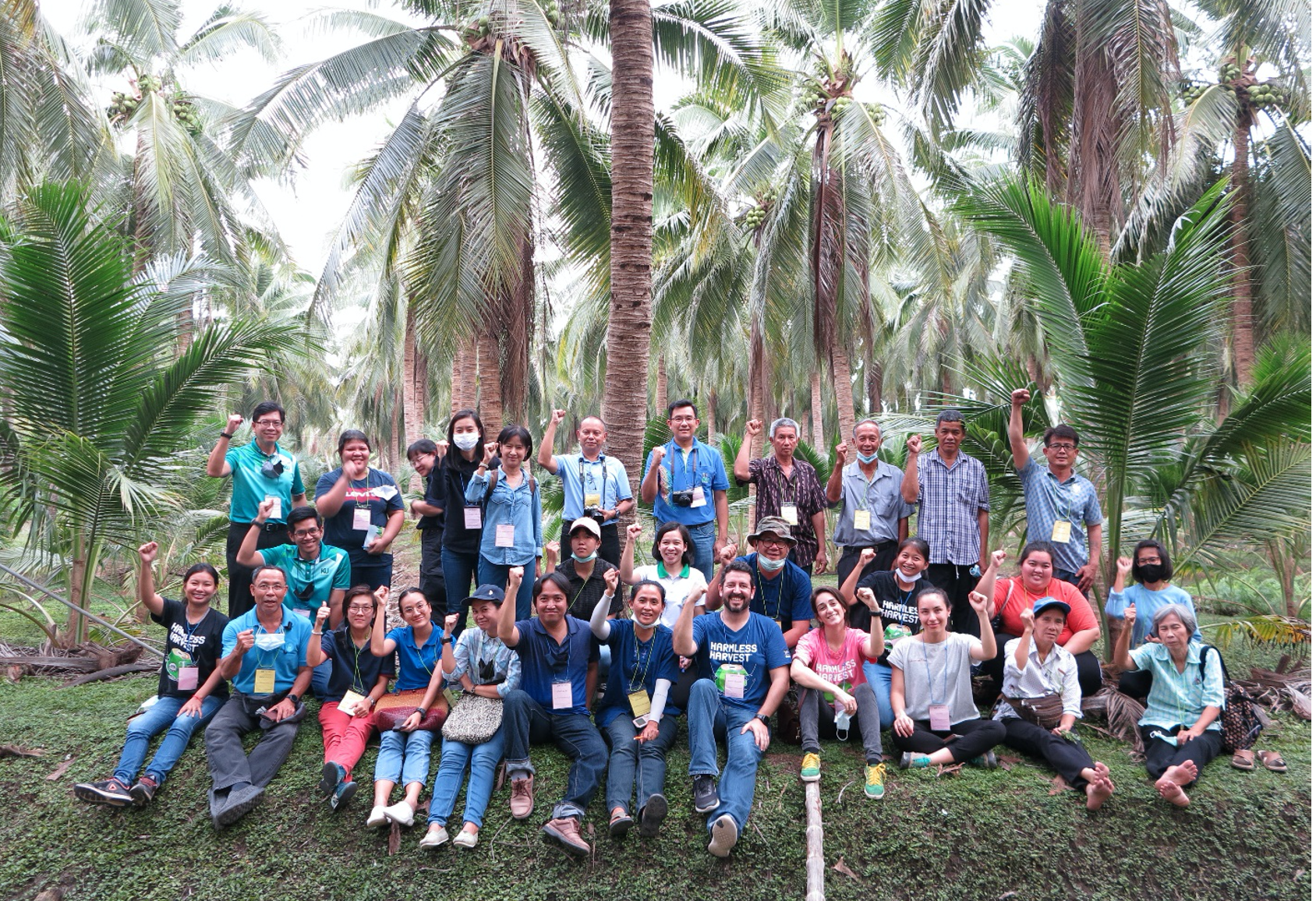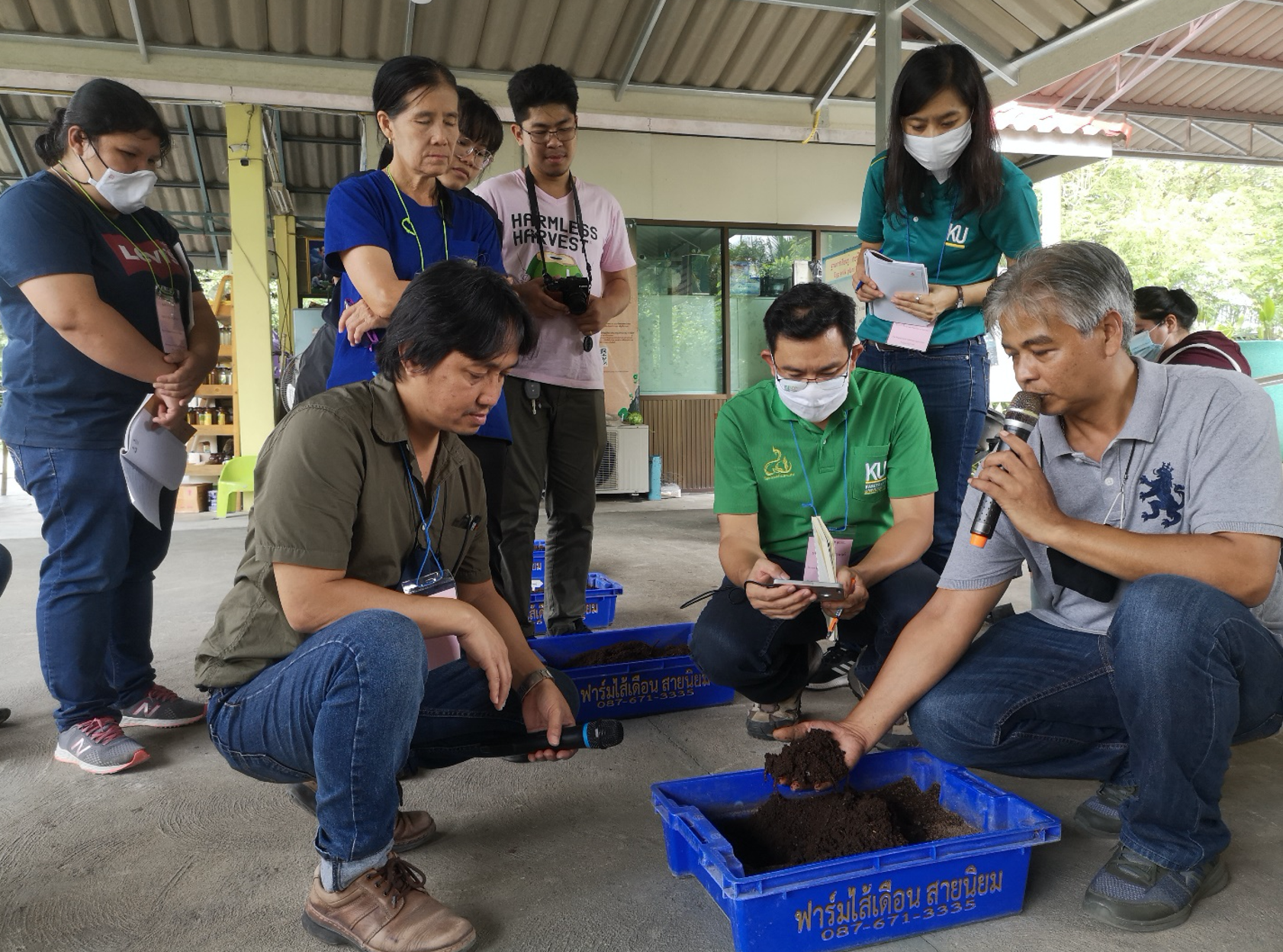Regenerative Coconuts Agriculture Project
Author: Valentin Kossack, Intern at Agriculture & Food Cluster Thailand

Aromatic coconuts from Thailand are known for their exceptionally fragrant water. The demand for these fruits from across the world has surged over the past few years. To keep up the supply, farmers have turned to monoculture and the use of heavy chemical inputs to boost their yields. The short-term focus of these practices is harming the environment and putting farmers and farm workers’ livelihoods at risk. In order to develop and incentivise more sustainable practices of coconut farming, the idea of the Regenerative Coconuts Agriculture Project (ReCAP) was born.
Nam Hom coconuts or aromatic coconuts are grown on the farm of Ms. Nuanlaor Dherdkiattikun. These coconuts are grown exclusively in central Thailand and are known for their exceptionally fragrant water. The farm of Nuanlaor looks like many other coconut farms in the area. The coconut palms are planted in rows, each bordered by an irrigation canal. The ground between the palms is mostly covered with old palm leaves and remains of coconut shells. A farm like this is often found in the area. However, on Nuanlaor’s farm, a lot will change in the coming months. She is one of the 13 pilot farmers who, as part of the Regenerative Coconuts Agriculture Project (ReCAP) launched in June 2020, will be designing the working methods on her farm according to the approach of Regenerative Organic Agri-culture. ReCAP is financed by Harmless Harvest and the Danone Ecosystem Fund, and implemented together by Harmless Harvest Thailand and GIZ.
Regenerative Organic Agriculture is a holistic approach that incorporates farming principles that restores the whole ecosystem and improves natural resources instead of exhausting them. In the implementation of these principles, great importance is attached to the achieving of clos ed nutrient cycles, the reduction or elimination of biocidal chemicals, greater crop and biological diversity, fewer annuals and more perennials and practices that mimic natural ecological processes. But Regenerative Organic Agriculture is more than that: Besides the agricultural practices and the focus on soil health, it also focusses on social fairness and animal welfare. Based on the principles of this approach, the Regenerative Organic Certification (ROC) was established in 2017 as a new certification for food, fiber, and personal care ingredients.
The objective of ReCAP is to support and train 350 coconut farmers to grow their coconuts ac-cording to regenerative organic practices. By adopting these practices, the soil health of the farms will be significantly improved so that coconut palms can be grown here for many generations to come. In addition, the farmers learn about basic business skills, enabling them to diversify and increase their income. Furthermore, the plan is to establish an entity that supports continuous development of regenerative organic farming practices in the project area.
During the trainings, the farmers learn how to reduce their risks against market price fluctuations, keep their soils healthy, and positively impact climate change through regenerative practices. Nuanlaor, one of the pioneering farmers who decided to join the project, is very happy with the first training sessions that took place in October 2020: “I am proud to be the pilot farmer. The training exceeded my expectations. After the training, I will implement in my farm what I have learned, and I will set up a learning centre to share the knowledge with other farmers.”
In a few months Nuanlaor and the other pilot farmers will transform their farms to ones that are filled with healthy coconut palms, various delicious intercrops (think of bananas, coffee, pep-per, etc.), honey from stingless bees and soil that will be covered with cover crops. The coconut water will still taste delicious – only the way of cultivation will have changed. This will be done in a way that will be both climate and farmer friendly.



